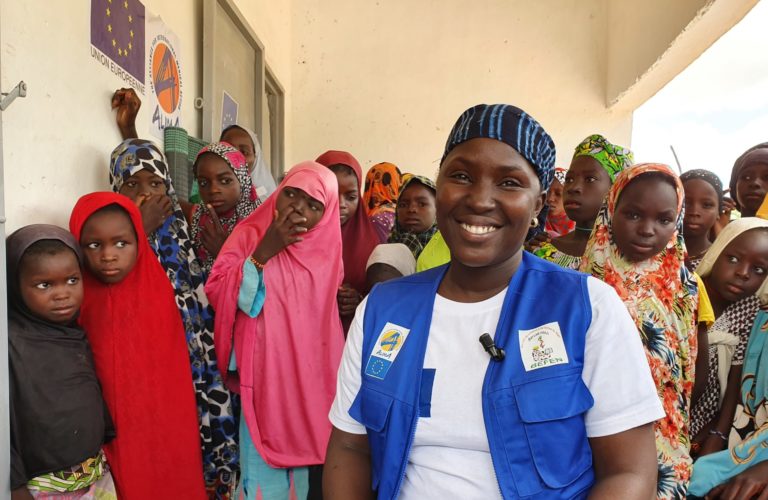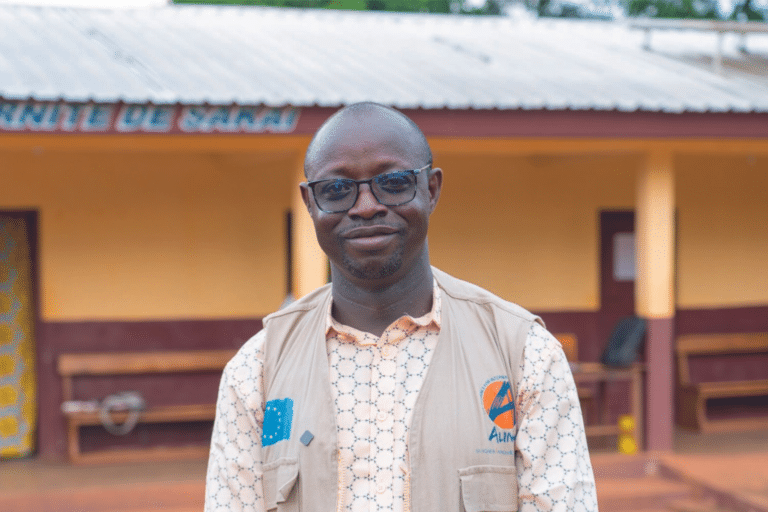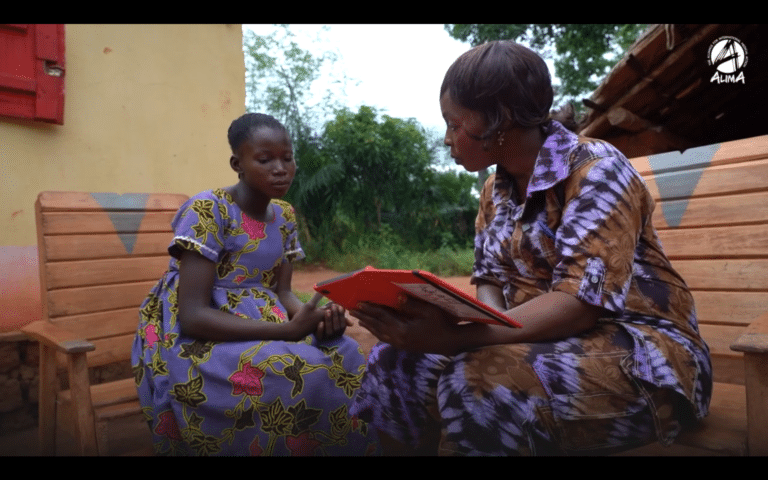Central African Republic (CAR): ALIMA’s Actions on the Ground
📍 ALIMA presence since: 2013
🛡️ Mission status: ongoing
🏥 Beneficiaries in 2024: 631,168
🔹 Key areas of expertise: Epidemics and emerging diseases | Malnutrition | Women’s health | Pediatrics | Research and innovation | Health system strengthening
Humanitarian situation in CAR
The Central African Republic (CAR) is experiencing a prolonged humanitarian crisis, marked by ongoing political and security instability.
Access to healthcare is extremely limited due to violence, geographic isolation from medical facilities, and a shortage of qualified health professionals. Pregnant women, children, and displaced populations are among the most vulnerable groups.
📌 Key figures of the crisis in CAR
- 🌍 Population: 5.3 millions (OCHA, 2024)
- 🚨 People in need of humanitarian aid: 2.4 million (OCHA, 2024)
- 🏠 Internally displaced persons and refugees: 496,400 (UNHCR, 2024)
- 🍽️ People facing severe food insecurity: 2.3 million (UN, 2024)
To address these challenges, ALIMA is taking action to strengthen the healthcare system, fight malnutrition, and improve the care of vulnerable populations.
Medical aid and humanitarian response in CAR
🥣 Fight against malnutrition
In several health districts, ALIMA runs nutritional programs focused on early detection and effective treatment of malnutrition.
📊 In 2024, ALIMA treated 4,652 children suffering from severe acute malnutrition.
🦠 Epidemic response
Our teams are actively involved in preventing and treating epidemics such as cholera and measles. Mobile clinics are deployed to provide medical care to displaced populations and people living in remote areas.
📊 In 2024, ALIMA vaccinated 100,807 people against measles, polio, hepatitis B, diphtheria, tetanus, whooping cough, and Haemophilus influenzae type b infections.
🏥 Strengthening the health system
In the Boda and Bimbo districts, ALIMA is strengthening healthcare delivery by training medical staff, implementing performance-based financing (PBF), and upgrading hospital infrastructure.
📊 In 2024, ALIMA trained 981 healthcare professionals.
Highlight project: reducing maternal mortality through innovation
🎯 Wakobo Ti Kodro project: empowering traditional birth attendants
“Wakobo Ti Kodro“, which means “traditional birth attendant” in Sango, is an innovative project to reduce maternal deaths in CAR.
📌 Why this project matters
- 40% of births take place at home, without medical follow-up.
- The maternal mortality rate in CAR is four times higher than the global average.
📌 Project goals
- Train traditional birth attendants to identify high-risk pregnancies at an early stage.
- Develop a mobile app in a local language to monitor pregnancies and raise awareness among future mothers.
- Create a referral system to healthcare centers using a QR code.
This innovative approach empowers pregnant women to be better informed and directed to the appropriate structures, thus reducing the risks associated with complications and unsafe births.
Testimony from the field: the impact of ALIMA's actions
Before, we didn’t know anything about high-risk pregnancies. With this project, we received training. Our job is to accompany pregnant women and refer them to the health center if something goes wrong. Because I’m part of the community, people trust me in this new role. They appreciate the work I do and understand how important it is.
Traditional birth attendant involved in the Wakobo Ti Kodro project
On the ground
Our News from CAR

Inspiration in Action: Dr. Binta, Female Doctor and Expatriate
Dr. Binta, originally from Guinea, is among the rare women holding fieldwork leadership roles. An expatriate since 2021, she is an assistant medical coordinator in

“We have trained 38 traditional birth attendants to identify and monitor high-risk pregnancies” – Dr Jérémie Hien on RFI
The Central African Republic ranks 188th out of 189 countries in terms of human development and has the highest infant mortality rate in the world.

Video Report: Traditional Birth Attendants Saving Lives With a Mobile App
In the Central African Republic, a new project is transforming maternal care by involving matrons, traditional birth attendants, in the management of high-risk pregnancies. The


